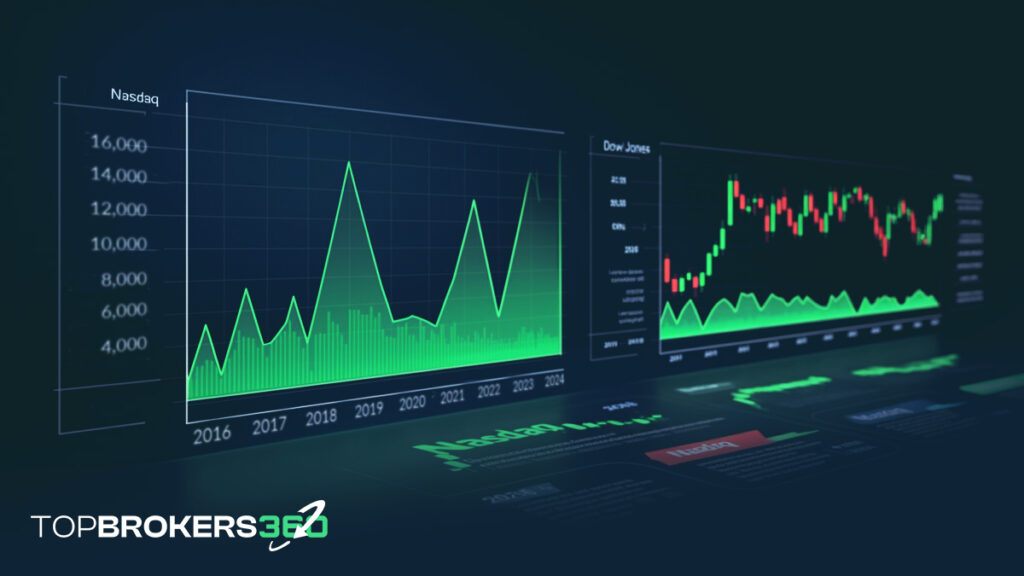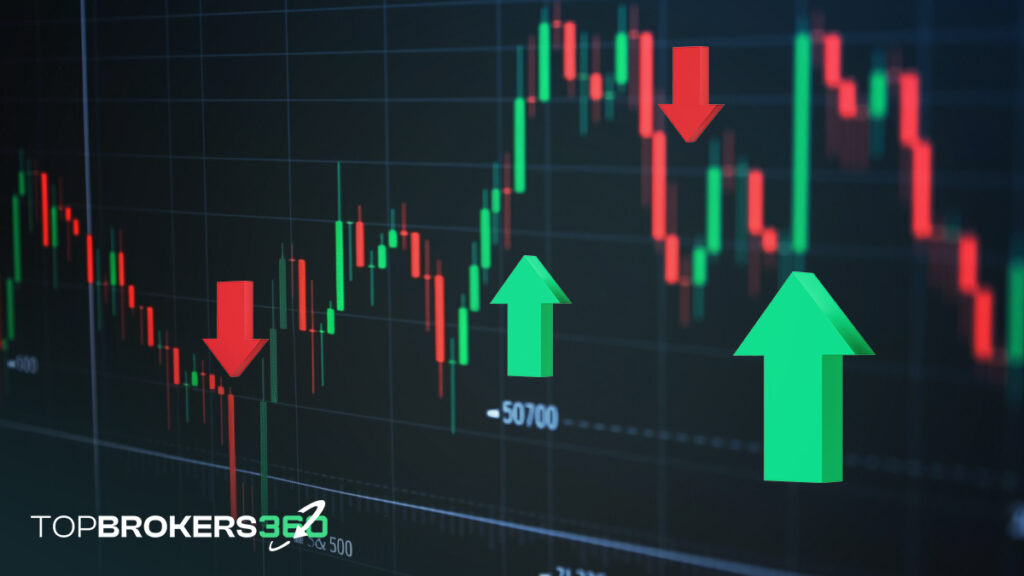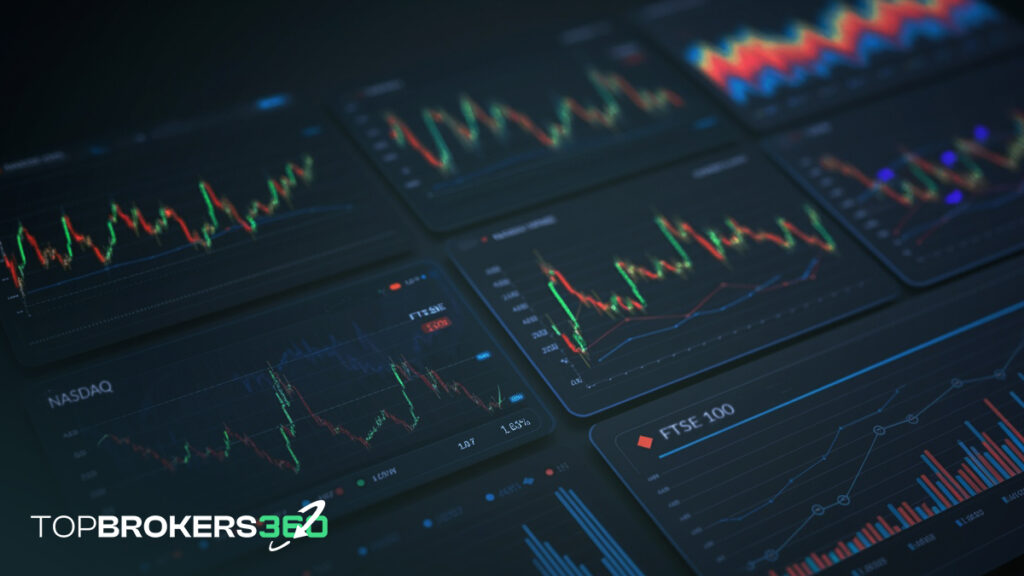When it comes to trading, indices are crucial tools that help investors track the performance of specific markets. They provide a snapshot of how groups of stocks or assets are performing, offering insights into broader market trends.
What Are Indices?
At their core, indices are measurements of the performance of a group of stocks. Each index represents a specific sector, industry, or market and tracks the changes in value of the companies within that group. For instance, the Nasdaq Composite measures the performance of technology companies listed on the Nasdaq stock exchange.

Interestingly, the first stock market index, the Dow Jones Industrial Average, was created in 1896 by Charles Dow and initially tracked just 12 companies. Today, it includes 30 major U.S. corporations and is widely regarded as a key indicator of U.S. market health.
Indices are useful because they allow investors to get a quick snapshot of the market’s health. Instead of evaluating individual stocks, you can follow indices to understand broader market movements. The performance of an index often reflects investor sentiment, especially when it comes to volatility.
Popular Examples of Major World Indices
- Nasdaq Composite (indices Nasdaq): This index tracks the performance of over 3,000 technology and growth-oriented companies listed on the Nasdaq exchange. It’s often viewed as a key indicator of the tech industry’s performance.
- Dow Jones Industrial Average (indices Dow Jones): The Dow Jones tracks 30 of the largest U.S. companies. Although it includes fewer stocks than other indices, it remains a vital barometer of market sentiment and economic strength, reflecting the performance of blue-chip stocks.
- Nikkei 225 (indices Nikkei): This index covers the top 225 companies listed on the Tokyo Stock Exchange, serving as a key measure of Japan’s economic health and a significant player in the Asian markets.
- S&P 500: The S&P 500 follows the 500 largest companies in the U.S. by market capitalization. It is widely regarded as one of the best representations of the American stock market’s overall performance and is a crucial benchmark for investors.
- FTSE 100: Tracking the 100 largest companies listed on the London Stock Exchange, the FTSE 100 provides insight into the UK economy, particularly in sectors like finance, energy, and consumer goods.
- DAX 30: The DAX 30 monitors the top 30 companies listed in Germany, offering a comprehensive view of the country’s industrial and financial sectors. It is one of the key indices for European market performance.
- Hang Seng Index: This index reflects the health of the Hong Kong economy, tracking the largest companies listed on the Hong Kong Stock Exchange. Sectors like banking, real estate, and technology play significant roles in its performance.
- CAC 40: Representing the top 40 companies listed on the Euronext Paris exchange, the CAC 40 serves as a key measure of the French economy, including sectors such as energy, luxury goods, and telecommunications.
Indices and Market Volatility

For example, did you know that during the 2008 financial crisis, the S&P 500, one of the major U.S. indices, lost nearly 50% of its value, reflecting the immense uncertainty in the market? This dramatic shift highlights how volatile indices can be during periods of economic instability.
Monitoring volatility helps traders make more informed decisions, especially during uncertain market conditions. Indices like the Dow Jones or Nasdaq often see significant movements during times of economic or political change.
Trading Indices
Indices trading is a popular strategy among both beginners and experienced traders. Instead of focusing on individual stocks, many investors choose to trade indices because they offer broader exposure to a market or sector. For example, by trading the Nasdaq Composite or the Nikkei 225, traders can take positions on the overall performance of tech stocks or Japanese businesses without having to pick individual companies.
You can trade indices through different financial instruments such as index futures, ETFs, or contracts for difference (CFDs). Each method has its own advantages, depending on your trading goals and risk tolerance.
The Importance of Major World Indices for Investors

Understanding indices volatility and learning how to navigate indices trading can significantly impact your investment strategy.
At every stage of your trading journey. keeping an eye on the major world indices can provide valuable insights and opportunities.
Do You Feel Ready to Start Trading Indices?
If you’re ready to start indices trading, choosing the right broker is the first step. At TopBrokers360, we have reviewed some of the best brokers that offer access to major global indices such as the Nasdaq, Dow Jones, and Nikkei 225.
➟ Check out our broker reviews to compare and select the best broker for you.
Added Insights
1. Which indices are the most volatile?
Some of the most volatile indices include the Nasdaq Composite, which tracks technology companies, and the Russell 2000, which focuses on smaller U.S. companies. These indices experience significant fluctuations due to factors like innovation in tech or smaller company earnings volatility. Volatile indices can offer higher potential rewards, but they also come with increased risk.
2. Are indices affected by news?
Yes, indices are highly sensitive to news events. Economic reports, political developments, and global events can all impact indices volatility. For example, when central banks announce interest rate changes or when major earnings reports are released, indices like the S&P 500 or Dow Jones often experience significant price movements, reflecting investors’ reactions.
3. What are indices futures?
Indices futures are financial contracts that allow traders to speculate on the future value of a specific index. They are commonly used in indices trading to take positions on whether an index will rise or fall at a future date. Popular indices futures include contracts based on the S&P 500, Nasdaq, and Dow Jones. These are often used by institutional investors and traders to hedge risk or speculate on future market movements.
4. Which indices have options?
Several major indices have options available for trading, including the S&P 500, Nasdaq Composite, FTSE 100, and DAX 30. Index options give traders the ability to buy or sell an index at a specific price by a certain date, allowing for strategic market positioning. This makes them a popular tool for managing risk or speculating on price movements without having to trade the individual components of the index.
5. Which indices are the best to trade?
The best indices to trade depend on your trading style and objectives. The S&P 500 is often recommended for those seeking broad U.S. market exposure due to its inclusion of large-cap companies across various sectors. The Nasdaq Composite is ideal for traders focusing on the tech sector, while the FTSE 100 and Nikkei 225 provide international market exposure. Each index offers different opportunities depending on your preferences and the economic sectors you want to target.
